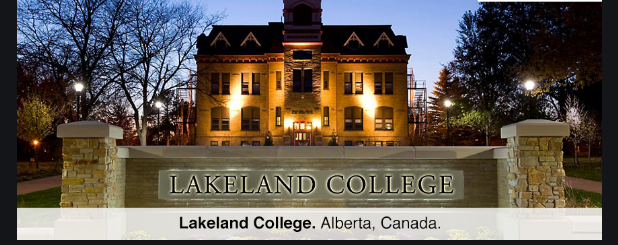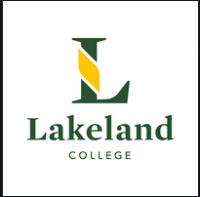Diploma in PROCESS AND POWER ENGINEERING
Broaden your career scope with the process and power engineering diploma.
Process and power engineering covers two power engineering classes. In first year, you’ll earn your 4th class certification. That’s a requirement before you move into your second practicum between your first and second year of classes.
For 3rd class training, you’ll move from the skills training in the Cenovus Power Engineering Lab to the more complex Energy Centre. It’s an integrated power plant with a once-through steam generator.
Power engineering is all about safely operating and maintaining boilers, turbines and engines. Your job prospects aren’t limited to the oil sector. You could work in:
power generation
chemical plants
food processing
hospital and institutional power plants
Our 2nd year steam practicum is what sets Lakeland apart. We find you spots, usually paid ones. This 3-month practicum comes after 200 hours of lab firing time.
When you finish, you can write ABSA’s certification exam.
Campus Information
Lloydminster Campus
Lakeland College 2602 59 Avenue Lloydminster, AB, T9V 3N7
Intakes
- Jan
- Sep
Application Processing Time in Days: 30
Minimum English Language Requirements
| English Level Description | IELTS (1.0 -9.0) | TOEFL IBT (0-120) | TOEFL CBT (0-300) | PTE (10-90) | |
|---|---|---|---|---|---|
| Expert | 9 | 120 | 297-300 | 86-90 | |
| Very Good | 8.5 | 115-119 | 280-293 | 83-86 | |
| Very Good | 8 | 110-114 | 270-280 | 79-83 | |
| Good | 7.5 | 102-109 | 253-267 | 73-79 | |
| Good | 7 | 94-101 | 240-253 | 65-73 | |
| Competent | 6.5 | 79-93 | 213-233 | 58-65 | |
| Competent | 6 | 60-78 | 170-210 | 50-58 | |
| Modest | 5.5 | 46-59 | 133-210 | 43-50 | |
| Modest | 5 | 35-45 | 107-133 | 36-43 | |
| Limited | 4 | 32-34 | 97-103 | 30-36 | |
| Extremely Limited | < 4 | < 31 | < 93 | < 30 |
Job Opportunity Potential
Make the most of your career and job fair experience. Start by preparing to meet with potential employers. This could be the start of your career.
Maybe you're wondering what you should do before the career fair and what you should ask potential employers. See some sample questions and ideas below.
What employers recommend:
Don't wait until the semester before you graduate to start looking for a job, the sooner the better!
Start talking to companies about opportunities as early as first year; a summer or part-time job is valuable in building your resume and experience.
Knowing something about the company before you approach them leaves a good first impression.
What should I do to prepare for the Career Fair?
If you do the work, then you can have a great experience:
Develop a resume.
Decide which employers you want to talk to and review the company profiles on this site.
Prepare a list of questions you want to ask.
Prepare and practice a brief introduction: your name, area of study and interests.
Dress professionally.
Exude confidence and enthusiasm and stay positive - be yourself!
Send follow-up letters after the event.
Sample questions to ask an employer:
What kinds of positions are you recruiting for and from which academic background?
What kind of work experience, either part-time or full-time, will be helpful to me?
What skills and personal characteristics are important to fit in and succeed at your company?
What are the education/training requirements?
What is the culture of your workplace?
What are typical entry-level positions in this field?
How important is relevant work experience when being considered for employment?
What is the employment outlook in this field for the next 5 - 10 years?
Do you know of anyone else I should be contacting to learn more about this type of work?
What advice do you have for a university or college graduate entering this field?
May I submit a resume for consideration?
PSW Opportunity
Eligibility for Post-Graduation Work Permit (PGWP):
Graduated from a designated learning institution (DLI) in Canada.
Desire to stay in Canada temporarily for work.
Important Note:
Graduating from a DLI doesn't automatically qualify you for a PGWP.
Validity of PGWP:
Depends on the length of the study program or the expiry date of your passport, whichever comes first.
Duration of PGWP Based on Study Program Length:
Less than 8 months (or 900 hours for Quebec credentials): Not eligible for PGWP.
At least 8 months (or 900 hours for Quebec credentials), but less than 2 years: PGWP may be granted for the same length as the study program (e.g., a 9-month program results in a 9-month PGWP).
2 years or more: PGWP may be valid for 3 years.
Completion of Multiple Programs:
PGWP may combine the lengths of each program if:
Each program is PGWP eligible.
Each program is at least 8 months (or 900 hours for Quebec credentials) in length.
Important Restriction:
You cannot obtain a PGWP if you already had one after completing an earlier program of study.
Admission Requirement / Eligibility Criteria
Admission requirements
1. High school diploma with a minimum of:
50% in English 30-1 or 30-2
50% in Math 30-1 or Math 30-2
English language skills: read, write and speak
All Lakeland College classes are taught in English, so you'll need to be able to speak, write and understand English to be admitted into one of our programs.
All applicants, regardless of citizenship or country of origin, must show English language proficiency in one of the following ways:
Successfully complete a year of full-time education in English:
You can take this year in Canada including the grade 12 year. This can be a combination of secondary and post-secondary education.
You can take this in another country, but English must be the official language of instruction. Lakeland College maintains a list of countries that satisfy English proficiency.
Successfully complete one of the following in English:
a grade of 60% in English Language Arts 30-1 (final blended grade including diploma or provincial exam mark) or Canadian equivalent
a grade of 65% in English Language Arts 30-2 (final blended grade including diploma or provincial exam mark) or Canadian equivalent
a grade of B or better in an O-level, GCSE, or IGCSE English Language or Literature course
a grade of B+ or better in 6 credit transferable university-level English Language and Literature course completed at a recognized English language institution
Successfully complete an English language program, with a minimum score at one of our approved partner schools.
Successfully achieve an acceptable score within the past two years on an English language evaluation test. Tests must have been taken within two years of the start date of the program.
See further details (including required scores) below.
Test of English as a Foreign Language (TOEFL)
You take the TOEFL test is online. It measures your ability to use and understand English at a university level.
You need a minimum 78 score on the internet-based test (iBT) exam and a minimum score of 19 in each of the four tested areas.
Tests are offered more than 50 times each year at authorized test centres around the world.
For more on test centre, costs and test preparation, check out the website for TOEFL test takers.
Lakeland requires a minimum score of 60 overall with at least 55 on each band score.
IELTS (International English Language Testing System) - minimum score of 6.0 overall with at least 6.0 on each band score on the Academic test for all programs.
There is no pass or fail, instead you are rated on a 9-band scale for listening, reading, writing and speaking. A Band 6 rating is called a competent user.
IELTS testing centres are located around the world and there are 48 testing dates throughout the year.
- Course Type: Full Time
- Course Level: Under Graduate Diploma or Certificate
- Duration: 02 Year
-
Total Tuition Fee:
35420 CAD
Annual Cost of Living: 20635 CAD
Application Fee: 90 CAD
Similar Programs
- Certificate in PRE-EMPLOYMENT WELDER at Lakeland College
- Certificate in PRE-EMPLOYMENT ELECTRICIAN at Lakeland College
- Certificate in PRE-EMPLOYMENT AUTOMOTIVE SERVICE TECHNICIAN at Lakeland College
- Certificate in POWER ENGINEERING TECHNICIAN at Lakeland College
- Certificate in COMMERCIAL AGRICULTURAL PRODUCTION at Lakeland College
- Certificate in GENERAL AGRICULTURE at Lakeland College

